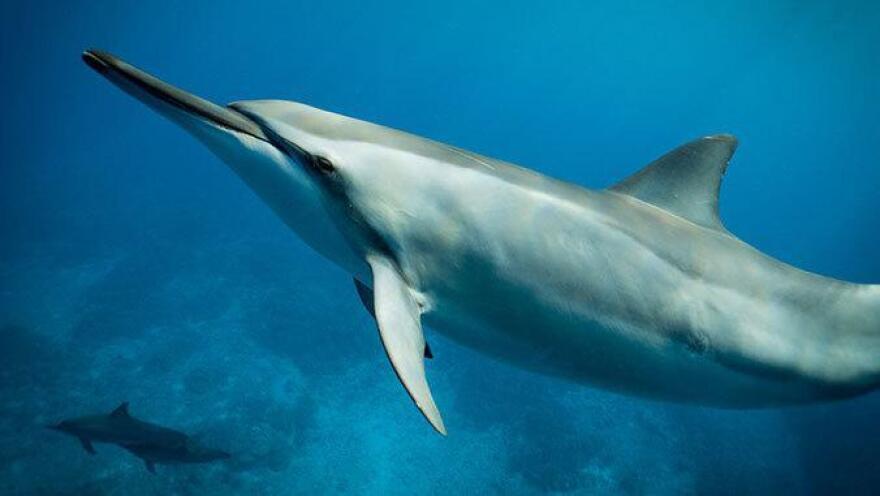A new study found that two more spinner dolphins have died from toxoplasmosis — a disease commonly found in cats, pigs, mongoose and chickens.
Researchers with the University of Hawaiʻi at Mānoa's Hawaiʻi Institute of Marine Biology concluded that the two dolphins died of toxoplasmosis in 2015 and 2019. This is the second and third recorded instance of spinner dolphins dying from the parasitic infection in Hawaiʻi.
Toxoplasmosis is a parasite typically found in the digestive system of warm blooded animals. There, it will reproduce, and its eggs are shed through the animal's waste. The eggs are resistant to environmental conditions and remain viable for up to two years. It's presumed that runoff washes the eggs into the ocean.
Researchers presume that marine animals likely ingest the eggs through contaminated water or prey.
"We already know it's the leading disease threat for endangered Hawaiian Monk seals. I think what this research shows for spinner dolphins is that if they are to be infected, it's very likely that they will die," said Kristi West, associate researcher at UH Mānoa's Hawaiʻi Institute of Marine Biology.
"It does indicate that it's a significant problem for spinner dolphins, as well."
Researchers estimate at least 60 spinner dolphins have died of the toxoplasmosis, but West said that they are currently unable to examine the vast majority of dolphin deaths from the infection.
West tells HPR her research is now focused on better understanding the lifecycle of the parasite. This will ultimately help create effective strategies to protect native species.
Conservationists say residents can help reduce the spread of toxoplasmosis through responsible cat ownership by spaying/neutering cats, keeping them exclusively indoors, and report any illegal dumping of cats or kittens outdoors into feral colonies.
If you see a beached, distressed or dead dolphin, West urges residents to call the toll-free NOAA Marine Wildlife Hotline at 1-888-256-9840.




